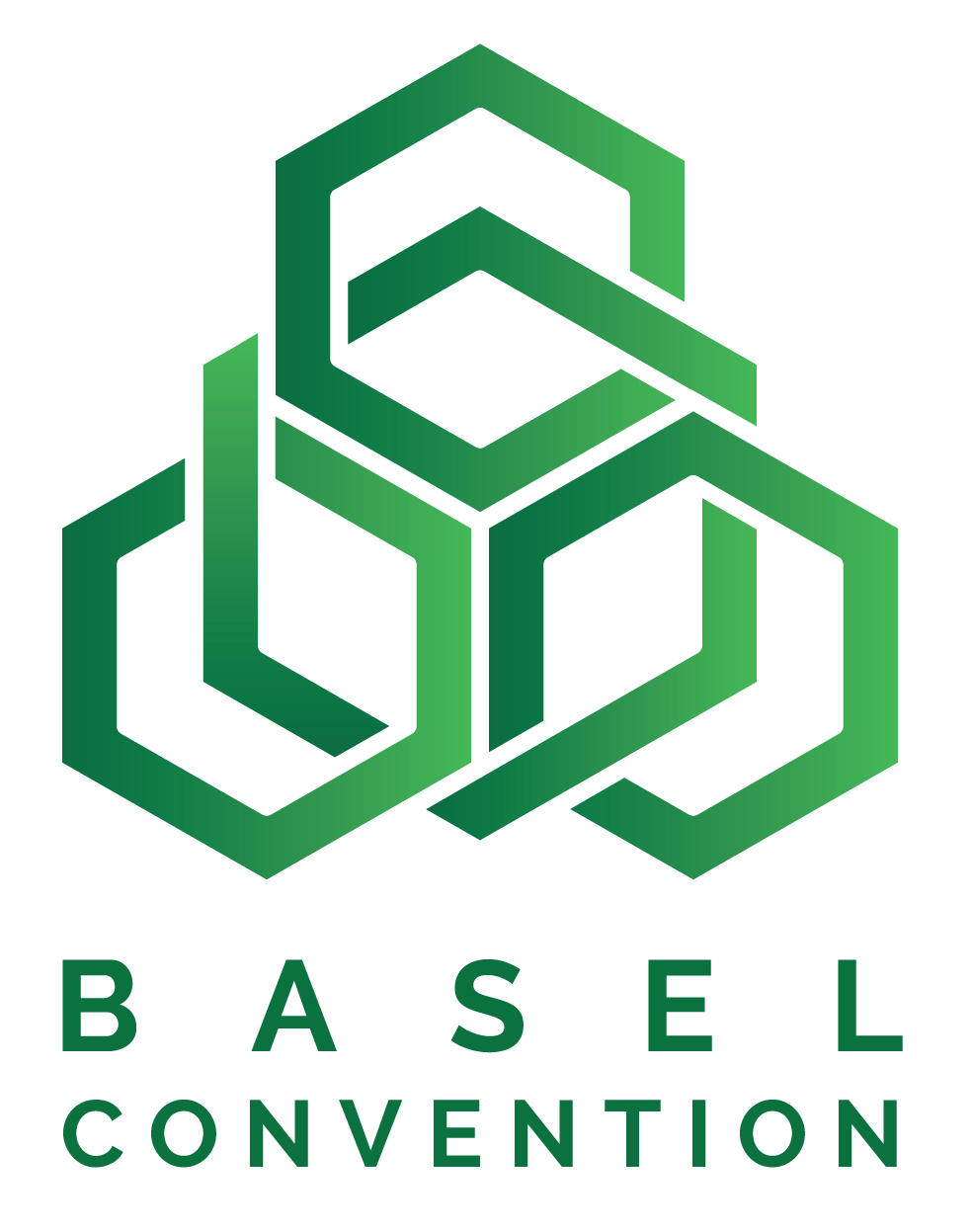Traceability of e-waste and the use of digital product passports for ICT goods
ITU, Secretariat of the Basel Convention, One Planet Network
In the modern era, the proliferation of information and communication technology (ICT) goods has led to a corresponding surge in e-waste. Managing this e-waste efficiently and responsibly has become a critical global challenge.
According to the UN's fourth Global E-waste Monitor (GEM-24), a record 62 million tonnes (Mt) of e-waste were produced in 2022. This amount would fill approximately 1.55 million 40-tonne trucks, roughly enough to form a bumper-to-bumper line encircling the equator.
This session delves into the complexities of traceability within the e-waste ecosystem, focusing on how the utilization of digital product passports could streamline processes and enhance accountability.
Digital product passports provide a comprehensive digital record of a product's lifecycle, from manufacturing to disposal, including details on components, materials, and recycling instructions. By adopting digital product passports, stakeholders can effectively track and trace the movement of ICT goods throughout their lifecycle, thereby facilitating responsible disposal and recycling practices.
Objectives:
- Provide an overview of existing initiatives on digital product passports and showcase best practices of the ICT sector.
- Highlight the role of international standards, including the introduction of the Recommendation ITU-T L.1070 “Global digital sustainable product passport opportunities to achieve a circular economy”.
- Provide insights into the work of the Basel Convention.
- Highlight challenges that countries may face in adopting digital product passports from the perspective of both issuers and receptors.
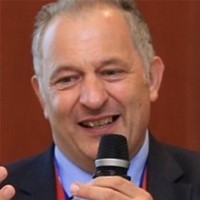
Paolo Gemma is a senior specialist and representative of Huawei on issues related to energy saving and environmental sustainability. Prior to joining Huawei, Dr. Gemma was working with Nokia Siemens Networks, where he was responsible for EMC (electromagnetic compatibility) and electrical safety areas. He also worked in the Siemens Communications Division. Dr. Paolo Gemma also plays an active role in international standardization activities. Since 1993, he has been engaged in ETSI (European Telecommunication Standard Institute) activities and he also participates in the development of EMC standards. In 1997, Dr. Gemma joined ITU-T Study Group 5 on Environment, Climate Change, and Circular Economy as a Rapporteur and he is now the Chairman of Working Party 2 “Environment, Energy Efficiency and the Circular Economy”. He also acts as Vice-chairmen of the United for Smart Sustainable Cities (U4SSC) initiative. In 2002, Paolo Gemma was appointed as the Secretary of the Committee ETSI TC EE and as of 2009, he holds the position of Chairman of the EEPS EE (eco Environmental product standard) working group. Paolo Gemma is a graduate of electrical engineering from the University of Genoa.
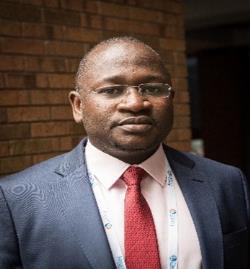
Currently Director General of Electronic Communications (DGICE) at Burkina Faso's Ministry for the Development of the Digital Economy and Posts (MDENP), he is also coordinator of the National Telecommunications Backbone Project. A graduate in Telecommunications Design Engineering from the Institut Nationale des Sciences Appliqué (INSA) in Rennes since 2007 and a graduate in Telecommunications Management from the Institut Nationale de Télécommunication (INT) in Paris, he has worked on numerous projects in Europe, notably for operators such as UPC Broadband in Holland, SFR and Bouygues Télécom in France.
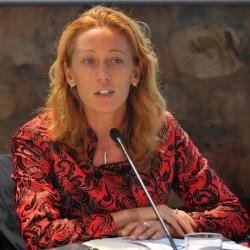
Elisa Tonda is the Chief of the Resources and Markets Branch of UNEP's Industry and Economy Division. This Branch works to boost resource-efficient growth and innovation to break the links between economic growth and environmental degradation. Elisa was formerly the Head of the Production and Consumption Unit of UNEP's Economy Division whose main goal is the promotion of sustainable production and consumption policies, practices and initiatives through the engagement of governments, the business community and civil society organizations.. The Unit has also played a leading role in the strengthening UN Environment's contribution to the greening of global value chains, and has been coordinating the development of several initiatives in the domain of circular economy.
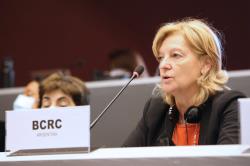
Leila Devia is a lawyer specialized in the legal regime of natural resources from Faculty of Law at the University of Buenos Aires (UBA). She has a PhD in Legal Sciences from the University of Salvador (USAL) and a Postdoctoral degree from the Faculty of Law at the University of Buenos Aires (UBA).
She is the Director of the South American Regional Center for Training and Technology Transfer dependent on the Secretariat of the Basel Convention (United Nations Environment Programme).
She is also a Member of the Enforce Network on Compliance with Legislation on Illicit Traffic in Hazardous Waste, Member of the Argentine delegation for the Basel, Rotterdam, Stockholm and Minamata Conventions and Member of the Intergovernmental Panel on Climate Change.
She is Consultant on International Technical Cooperation issues in the International Chemical Agenda (Chemical Products and Waste).
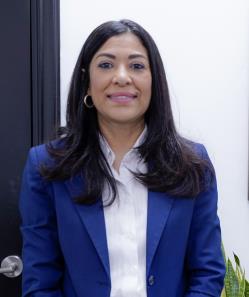
Currently works in the International Affairs Department at the Dominican Institute of Telecommunications (INDOTEL), representing the country in different international forums and events, such as the 2022 Plenipotentiary Conference, the World Standardization Assembly 2022, WSIS 2023, among others. Actively participated, under the auspices of the International Telecommunications Union (ITU), in the preparation of the project Regulation on Management of Waste Electrical and Electronic Equipment (WEEE), within the Framework of the Extended Responsibility of the Producer, Importer and Marketer. Likewise, in terms of the work coordinated by the ITU, she collaborated with the implementation of the Partner2Connect (P2C) coalition, which is a coalition created to promote the digital transformation of the difficult to connect communities and where the Dominican Republic is currently the country partner for the Americas region, within the framework of this coalition
Yamilka López has a Law degree and several specializations in Foreign Trade. She speaks Spanish, as a native language, English and Portuguese fluently.
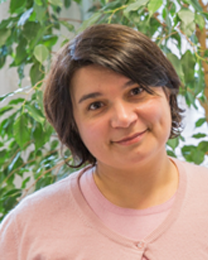
Ms. Cenni is a programme officer of the Science and Technical Assistance Branch. She the focal point for technical assistance for the Basel Convention and is responsible for technical assistance on emergencies, in the Secretariat. She coordinates the Partnership for Action on Challenges relating to E-waste (PACEII) and she also serves as focal point for BRS activities in Latin America and the Caribbean. Ms. Cenni is one of the authors of the E-waste Challenge MOOC and in the past she coordinated the Probo Koala assistance programme in Africa, the E-waste Africa programme and the Mercury and Lead programmes of the Basel Convention, facilitating projects in cooperation with the Basel Regional Centres. Prior to joining UNEP, Ms. Cenni was the environmental manager of a chemical company in the waste water treatment sector, where she was responsible for the environmental management system, according to the ISO 14000 standards. In UNEP she participated in the Palestinian-Israeli portfolio of activities of the Post-Conflict and Disaster Management Branch. Ms. Cenni, an Italian national, holds a Master's degree in environmental sciences and studied at Bologna University, in Italy and Lund University in Sweden, where she specialized in marine toxicology.
-
 C6. Enabling environment
C6. Enabling environment
-
 C7. ICT applications: benefits in all aspects of life — E-environment
C7. ICT applications: benefits in all aspects of life — E-environment
-
 C11. International and regional cooperation
C11. International and regional cooperation
-
 Goal 9: Build resilient infrastructure, promote sustainable industrialization and foster innovation
Goal 9: Build resilient infrastructure, promote sustainable industrialization and foster innovation
-
 Goal 12: Ensure sustainable consumption and production patterns
Goal 12: Ensure sustainable consumption and production patterns
-
 Goal 13: Take urgent action to combat climate change and its impacts
Goal 13: Take urgent action to combat climate change and its impacts
